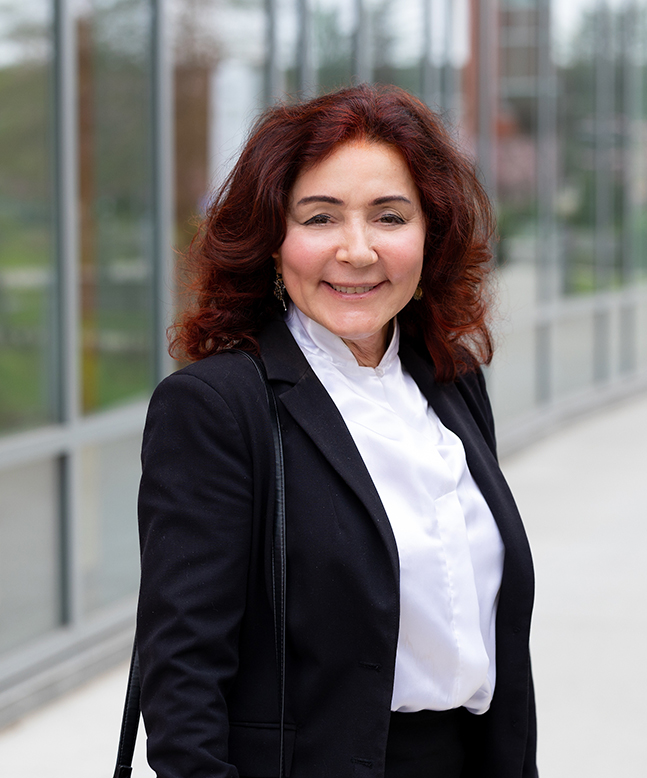Adelphi students find their voice in the national conversation on criminal justice.

Cristina Zaccarini, PhD
Two years ago, Cristina Zaccarini, PhD, associate professor of history, took a new approach to a long-standing problem: how to communicate the urgency of enduring struggles to students. Rather than limit her curriculum to materials that probe historical events, which can minimize the relationship between past and present, she gave her first-year students the opportunity to engage one-to-one with people whose lives have been shaped by landmark events. In the resulting course, Mindfulness and the Study of History, students learned how America’s penal system is the product of a long history of oppression—and how judgmental habits of mind are used to uphold it.
Dr. Zaccarini began by teaching the principles of mindfulness alongside an overview of American exclusion of minority populations dating back to the 1860s. “Mindfulness is being aware of our thoughts, feelings and the present moment,” she said. “It’s also when we ask ourselves, ‘Am I judging?’ This helps us become more accepting of ourselves and recognize and resist the ways we judge others.” This acceptance, she argues, is essential in the fight for a just penal system. “We must personally overcome the prevailing narrative that says incarcerated people get what they deserve, and instead consider how factors such as economic and educational equity could have made a difference.”
To show her students the power of mindfulness in even the most challenging of circumstances, Dr. Zaccarini, with support from Adelphi’s Innovation Center, organized a collaboration with Network Support Services (NSS), a Bronx-based organization that teaches mindfulness as part of the rehabilitation and reentry programs it provides incarcerated people and those on parole in New York state. With the help of NSS outreach director NahShon Jackson, students in the class reached out anonymously to NSS program participants, then conducted 45-minute interviews on Zoom or over the phone. Dr. Zaccarini, who wrote about the class in a chapter in Handbook of Research on Practices for Advancing Diversity and Inclusion in Higher Education,1 said the interviews had a tremendous impact on her students. “These returning citizens demonstrated that people are able to move forward using productive tools,”she said. “It encouraged my students to stop living in the past and worrying about the future, and instead focus on the present. These interactions also helped correct the misconception that the incarcerated are fundamentally bad people. Students learned that the individuals who had been rehabilitated by NSS were eager to turn their lives around and uplift others.”
That impact is clearly visible in a documentary about the class by the award-winning filmmaker Art Jones of Great Jones Productions. Shot on campus, Prison Reform and Mindfulness 101 includes moving testimony by students as well as alumni of the NSS program. Armed with new modes of thinking that counteracted stereotypes, Dr. Zaccarini’s students came to see themselves as producers of history with the power to make a difference by helping released men successfully reintegrate into society by securing much-needed housing and employment.
“My students developed a connection to the world outside their orbit,” Dr. Zaccarini concluded. “They felt they could really make a difference in one of society’s most urgent problems.”
Footnote
1 Zaccarini, Maria Cristina. “First-Year College Students Connect with Citizens Returning from Incarceration Through Mindfulness: Diverse Voices and the Production of History.” Handbook of Research on Practices for Advancing Diversity and Inclusion in Higher Education, edited by Eleni Meletiadou, IGI Global, 2022.